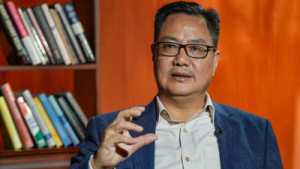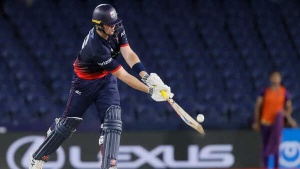Dengue fever, a mosquito-borne viral infection primarily transmitted by the Aedes aegypti mosquito, poses a significant public health challenge, particularly in India. The infection, which can manifest in a range of symptoms from mild to severe, is estimated to affect 100–400 million people globally, with India bearing a substantial burden. As the annual monsoon season approaches, bringing with it a surge in dengue cases, there is growing optimism surrounding the development of India's first dengue vaccine, which is now in the advanced stages of Phase 3 clinical trials.

Dengue fever, spread by Aedes mosquitoes, is characterized by high fever, severe headaches, joint and muscle pain, and a potentially dangerous decrease in blood platelet count. In severe instances, the disease can lead to hemorrhage, organ failure, and even death. Children and the elderly are particularly vulnerable to the most severe complications of dengue.
Developing a safe and effective dengue vaccine has been a long-standing challenge for scientists. The primary obstacle lies in the fact that there are four distinct serotypes of the dengue virus. An effective vaccine must provide protection against all four serotypes to prevent the disease effectively. Previous vaccine development efforts in other countries have yielded mixed results, and none have achieved widespread use.
The Serum Institute of India (SII) is at the forefront of developing India's first dengue vaccine, named “TetraVax-DV.” This vaccine is designed to provide protection against all four dengue virus serotypes. Like many vaccines, TetraVax-DV utilizes a weakened form of the virus to stimulate the body's immune system, enabling it to effectively combat dengue infection without causing the illness itself.
Vaccine development involves several phases of clinical trials before it can be approved for public use:
Phase 3 is a critical stage, as it demonstrates whether the vaccine can effectively prevent dengue fever in the community.
The Phase 3 trials for India's dengue vaccine commenced in 2023. These trials are being conducted at over 20 locations across the nation, encompassing both urban and rural settings. The study aims to enroll over 10,000 volunteers, including children and adults from diverse backgrounds. Current reports indicate that enrollment is nearing completion, and initial findings are promising.

The next steps in the development of India's dengue vaccine include:
India faces a substantial burden of dengue cases each year. Dengue outbreaks strain healthcare facilities and inflict suffering on families. A safe and effective vaccine has the potential to:
Irrespective of the vaccine's availability, preventive measures remain crucial during the dengue season. These include implementing mosquito control strategies (using repellents, wearing protective clothing), ensuring proper drainage, and eliminating potential mosquito breeding sites by removing stagnant water sources.
The Indian Council of Medical Research (ICMR) and Panacea Biotec
Newer articles
Older articles
 Smith Eyes Grenada Test Return After Injury Recovery
Smith Eyes Grenada Test Return After Injury Recovery
 Google Maps Boosts Navigation Precision with Fused Orientation Provider Update
Google Maps Boosts Navigation Precision with Fused Orientation Provider Update
 Earth Sciences Minister Rijiju Expresses Frustration Over Atos Supercomputer Delay, Jeopardizing Weather Forecast Upgrades
Earth Sciences Minister Rijiju Expresses Frustration Over Atos Supercomputer Delay, Jeopardizing Weather Forecast Upgrades
 Washington Freedom Snatch Last-Ball Win Over Knight Riders in MLC Thriller; Playoff Hopes Soar
Washington Freedom Snatch Last-Ball Win Over Knight Riders in MLC Thriller; Playoff Hopes Soar
 East Africa Rift: Mantle Upwelling Drives Birth of New Ocean, Study Finds
East Africa Rift: Mantle Upwelling Drives Birth of New Ocean, Study Finds
 Prasidh Krishna Vows to Sharpen Bowling After Costly Leeds Performance
Prasidh Krishna Vows to Sharpen Bowling After Costly Leeds Performance
 Colon Cancer: Don't Ignore These 5 Subtle Warning Signs
Colon Cancer: Don't Ignore These 5 Subtle Warning Signs
 Gavaskar Urges India to Replace Thakur with Yadav for Second Test Against England
Gavaskar Urges India to Replace Thakur with Yadav for Second Test Against England
 Rishabh Pant's Unconventional Batting Style Is Revolutionizing Cricket, Says Greg Chappell
Rishabh Pant's Unconventional Batting Style Is Revolutionizing Cricket, Says Greg Chappell
 Vitamin B12 Deficiency: Cardiologist Explains Symptoms, Sources, and Why You're Always Tired
Vitamin B12 Deficiency: Cardiologist Explains Symptoms, Sources, and Why You're Always Tired